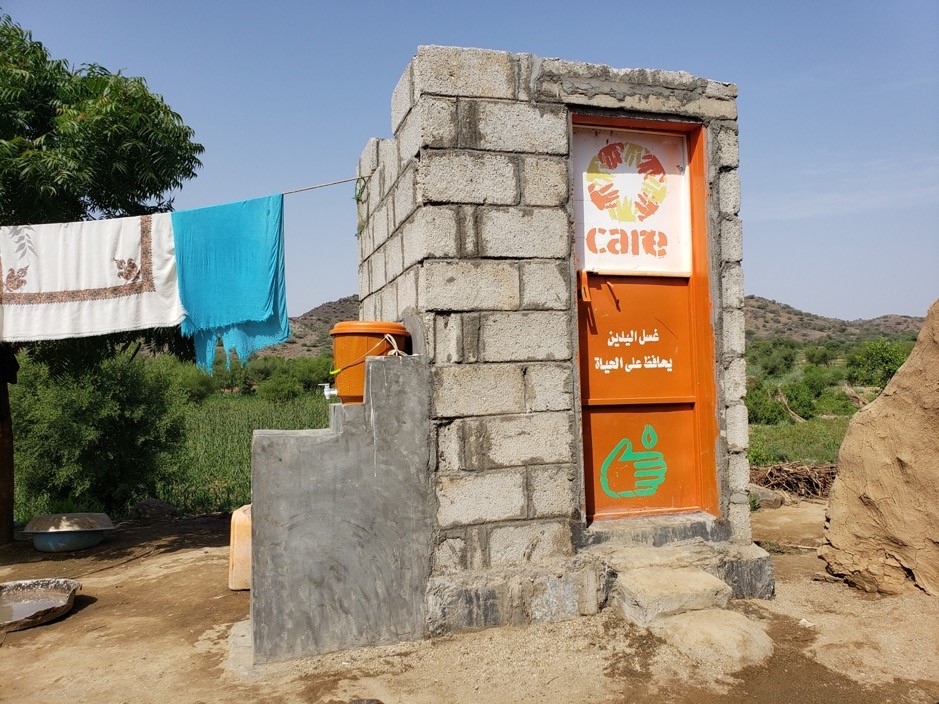Mutah Jareb Hamidi is a 65-year-old mother of five. She lives in a remote village called Maghshoosha, in Kua’aidenah district of Hajjah governorate in northern Yemen. In this village most people live without latrines, and do not practice good personal hygiene, which causes the spread of diseases like cholera and illnesses like acute watery diarrhoea, especially among children and the elderly.
The majority of the villagers of Maghshoosha still defecate in the open, which worsens health problems. Mutah says: “People here are used to defecating outside near the roads or farms. We are illiterate, we don’t understand what may affect our health. Repeatedly, my grandsons had diarrhoea and stomach pains. We tried to cure them using traditional methods because there is no health centre in our village or in the neighbourhood.”
Mutah continues in a whisper: “Women and girls didn’t use latrines, but they would go to the bush, or other open places to defecate. We were waiting until night to go under cover of darkness to relieve ourselves, and this put us at risk of reptiles, insects or snakebite. At the same time this affected the dignity of women and girls in our society.”
Fortunately for Mutah and residents of the village, with funding from the Office of U.S. Foreign Disaster Assistance (OFDA), CARE intervened with a water and sanitation project. CARE constructed household latrines with handwashing facilities and distributed chlorine to purify water and containers. Through hygiene promotion they also learnt how to make drinking water safe and how to store it in clean containers, and how to care of their personal hygiene.
Mutah explains how she used to suffer from unclean drinking water. “Believe me, monthly I used to get diarrhoea,” she says. “The water was from contaminated wells. After we received chlorine we use the tablets to put in the jerry cans, and now there is no diarrhoea any more for me or the children. Chlorine reduced the diseases and diarrhoea in our village.”

